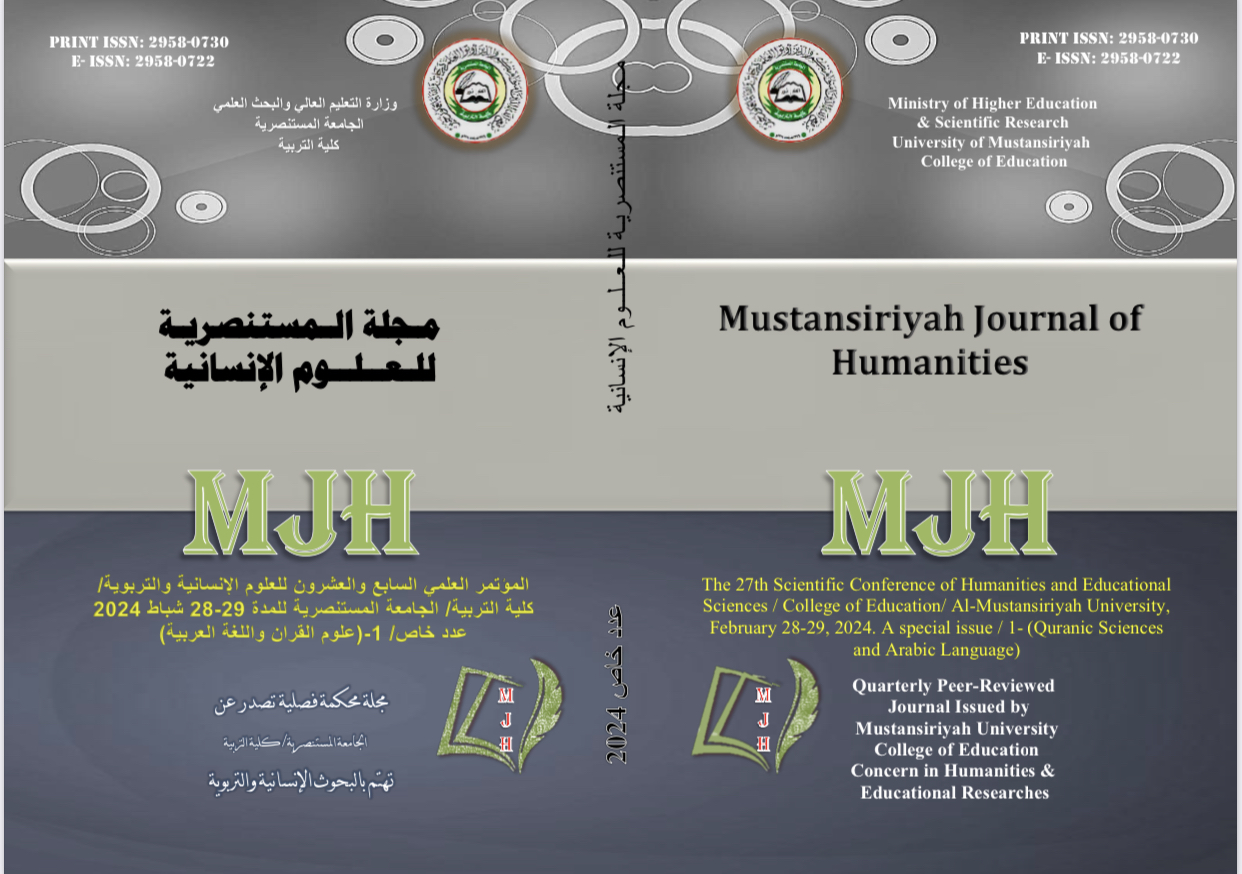The effectiveness of a proposed strategy based on cognitive criticism in developing the skills of analyzing literary texts among students of the Arabic Language Department in colleges of education
DOI:
https://doi.org/10.47831/mjh.v1iخاص.424Keywords:
proposed strategy, cognitive criticism theory, literary text analysis.Abstract
This research was conducted in the Arabic Language Department/College of Education/Al-Qadisiyah University, and aimed to identify the effectiveness of a proposed strategy based on cognitive criticism in developing the skills of analyzing literary texts among students of the Arabic Language Department in the Colleges of Education. The research followed the experimental method and relied on a controlled experimental design partial. It is an experimental and control group design with a post-test. The researchers randomly selected two divisions of the department as the experimental group, a sample of (110) students, and the other two divisions as the control group of fourth-grade students. The researchers rewarded the students of the two research groups on some variables, and prepared a strategic tool, cognitive criticism, which is a test that measures the students’ ability to analyze literary texts, as it included (20) multiple-choice items and four essay questions. After analyzing the data, the researchers concluded the following: There is a statistically significant difference between the average scores of the students of the two research groups in cognitive criticism in the post-test in favor of the experimental group at a significance level (0.05).





